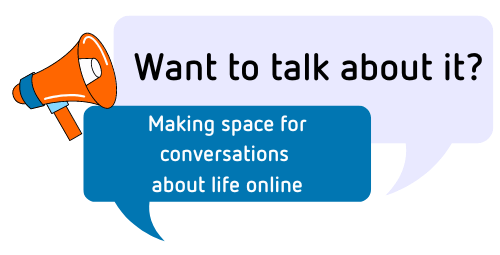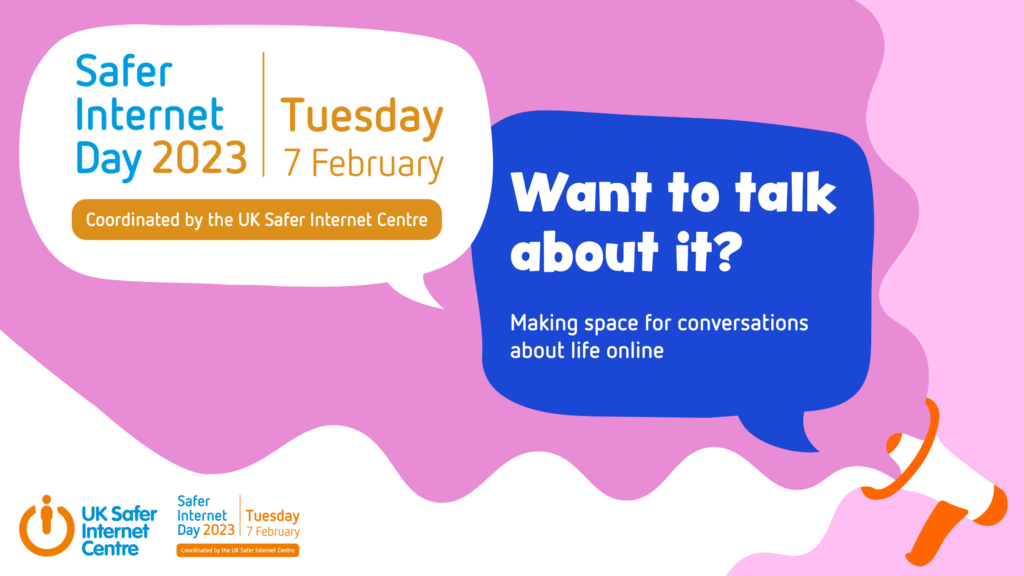Safer Internet Day 2023
At One Education’s Safeguarding Conference last Friday, 3rd February, we heard from Mike Palmer, who is one third of 3 Dads Walking. 3 Dads Walking was set up after three fathers, Mike, Tim and Andy, had all lost their daughters to suicide. United in grief, their aim was to walk across the country, raise awareness, get people talking about suicide, remove the stigma, and subsequently, put a stop to the huge, unnecessary loss that suicide causes. Today’s Safer Internet Day theme is:

The voice of the child is always of paramount importance for schools and safeguarding practitioners, but it has never been more important to talk, and really listen, to the experiences of children when discussing their online world.
During Mike’s keynote address on Friday, he expressed that had he been more aware of suicide and poor mental health before his daughter Beth, took her own life, he may have noticed that something wasn’t quite right. Since her death, Mike has learnt that the signs and indicators that Beth was contemplating suicide were there. Some, more subtle than others, but still…there.
We know that it is rare that children will verbally disclose abuse to parents, peers or staff in schools, for various reasons. This is the case for many things that children are exposed to, in person or online. Last year’s Keeping Children Safe in Education stated for the first time that: “All staff should be aware that children may not feel ready or know how to tell someone that they are being abused, exploited, or neglected, and/or they may not recognise their experiences as harmful. For example, children may feel embarrassed, humiliated, or are being threatened.”
It has never been more important to raise the profile of trusted adults in schools, and for professionals to be curious when something isn’t quite right. What an ideal world it would be if every child (or adult) told someone every time they were being abused, or bullied, or felt that they wanted to harm themselves. But that shouldn’t stop us asking the questions – “Are you really OK?” or “Do you want to talk about it?” It is important to recognise that where a child doesn’t give a verbal disclosure, or doesn’t respond to these questions, we must be professionally curious and advocate for them.
Think:
- What is different about the child?
- Do they seem happy/sad/withdrawn?
- Has their appearance changed?
- What is their school attendance like?
- Have they disengaged with things they previously enjoyed?
- What are the family circumstances?
- Are there external factors influencing their behaviour?
- Are their friends worried about them?
- Have they suffered adverse childhood experiences? And always share your concerns.
The coroner’s inquest into the death of Molly Russell was published last September, and stated: “she took her own life while suffering from depression and had interacted with harmful social media content” and that material viewed by the 14 year old “shouldn’t have been available for a child to see.” We know that there is still much to be done and huge accountability which lies with social media companies, but in the meantime, it’s down to parents, schools and multi-agency partners to support children, open up conversations and intervene where possible.
Whilst sadly, we cannot change the outcomes for Molly, or for Mike’s daughter Beth, we must all, as members of society and as professionals working with children, take responsibility for keeping children safe, and we must ask children if they “want to talk about it.” Whether it be after noticing a change in their appearance, their body language, their reaction to content on social media or changes within their friendships, we have to listen to their voice – whatever that sounds, looks or feels like, and act within their best interests.
Our experts in Education Welfare & Safeguarding can also support you to improve the policies and practices in your school, working together to promote the welfare of all children and protect them from harm.
Please get in touch to find out more.












